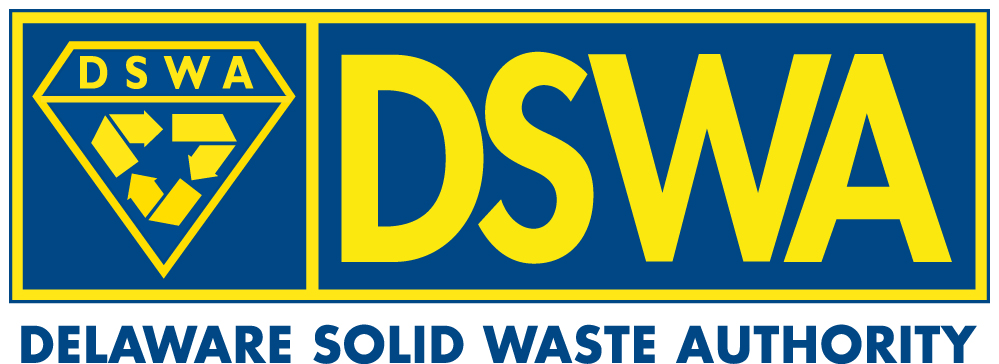No, though created by the General Assembly in 1975, DSWA is not a state agency. DSWA receives no state or federal tax dollars.
DSWA has a toll-free Citizens’ Response Line with operators available Monday-Friday 8:00 a.m.- 4:30 p.m. The number is 1-800-404-7080.
Yes, DSWA has a seven-member Board of Directors that with the exception of its Chairman, who is appointed by the State Senate, the Board is appointed by the Governor for three-year terms. Board members serve voluntarily and without pay. Serving on the Board takes a strong commitment; given that they serve as a working group, not an advisory group attending, meetings, public hearings, workshops, and much more. The Board of Directors sets policies and makes decisions regarding current operations, programs, and planning.
It costs $85.00 per ton to dispose of waste at a DSWA landfill. The minimum fee is $7.50 which can be applied to cars and small trucks hauling 160 pounds or less of waste.
Once garbage is brought to a DSWA landfill, it stays at the landfill. DSWA does not send garbage out of state.
No, DSWA landfills are available for use by all Delaware residents.
Yard waste is accepted at all three DSWA landfills. However, since January 24, 2008, residents may not bring yard waste mixed with household garbage for disposal. Yard waste is accepted but must be separate from household trash. Each landfill has its own section for yard waste.
A transfer station is a facility that accepts solid waste from haulers, businesses, and residents. The purpose of a transfer station is to save on the number of vehicles traveling to and from DSWA landfills and to also cut down on fuel and greenhouse gas emissions.
A collection station provides residents a cost-effective way to dispose of bagged household garbage, yard and single stream recycling. Residents pay $1 per bag to dispose of household garbage and yard waste and are able to drop off recycling for free.
Latex paint can be disposed of in the regular trash if it is first solidified. Open the paint can lid in an open safe area; accelerate drying by adding kitty litter, wood chips, sawdust, or paint hardener (found in most paint stores/paint departments). Once the paint has dried and solidified it can disposed of. Check with your trash hauler to see if they will collect these cans. Latex paint can also be brought to a DSWA Latex Paint Collection event in liquid form. For more information visit the Latex Paint Collection Page.

